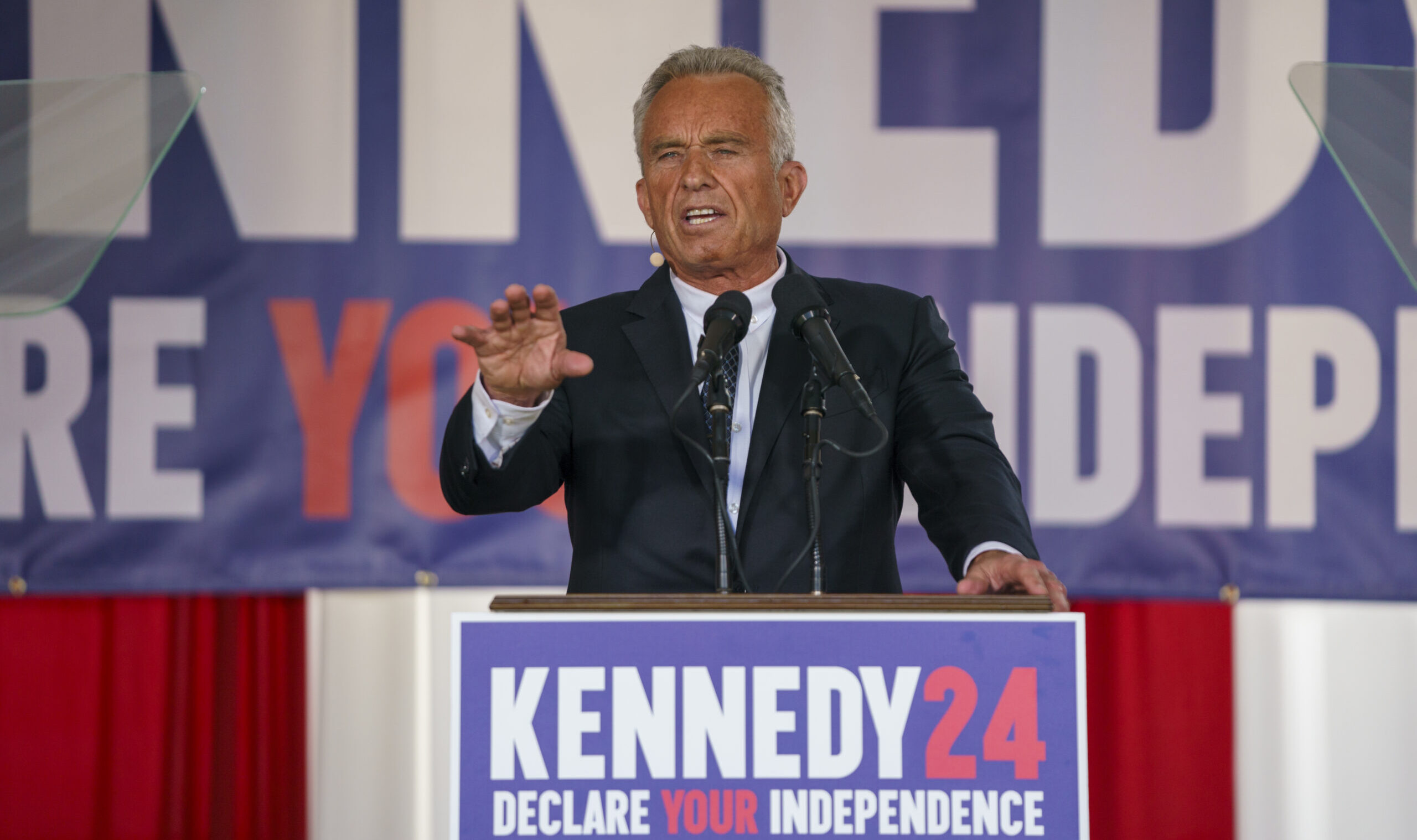RFK for VP?
Why a transpartisan ticket could still happen, although it looked likelier six months ago.

Running mate announcements usually come around July or August. During this interlude between the New Hampshire and South Carolina primaries, rumors are flurrying that presumptive nominee Donald Trump will choose former contenders Vivek Ramaswamy or the recently engaged Tim Scott. Donald Trump Jr. has indicated his preference for ideological alignment with the suggestions of J.D. Vance or Tucker Carlson. Some surveyors, those uninitiated in the spirit of Trump’s second candidacy, suggest Kristi Noem or Elise Stefanik. And others slow down the internet with the suggestion of Nikki Haley.
Outside the safe predictions, there remains the wild card pick of Robert F. Kennedy Jr. Through his switch from the Democratic ticket to an independent run, the candidate has already indicated that he prioritizes the end of getting to the White House over the means.
Some adjacent to Trump world don’t seem to think it’s such a crazy idea. Days after Kennedy announced his candidacy in April, Steve Bannon said he received a standing ovation from a “hardcore MAGA, War Room posse crowd” when he suggested that Kennedy would be worthy of Trump’s consideration were Kari Lake not available. Longtime political operative Roger Stone, a week before Kennedy’s announcement, floated the idea in a Substack post that, according to him, elicited more public comment than anything he’d ever written.
The problem with this idea is Trump’s penchant for loyalty. Kennedy wrote the foreword to the January 2024 title Trump’s War on Capitalism, an autopsy critical of the administration’s policies written by Ronald Reagan’s first Office of Management and Budget director, David Stockman. Kennedy also suggested in January that Trump overruled his own instincts in his treatment of Covid and the subsequent lockdowns.
Some who were once supportive of the idea have backed away. Stone, one of the original public faces of the proposition, now tells The American Conservative that “dynamics have changed dramatically since the time I mused about RFK as a potential running mate for Donald Trump.” Stone’s April article relied on the potentially positive electoral effects of a “‘bipartisan’ unity ticket,” citing John McCain’s alleged interest in tapping the independent Democrat Joe Lieberman as his running mate in his 2008 bid.
Stone believes that the proposed ticket is no longer “viable or plausible.” He also worries that Kennedy’s candidacy could mirror Ross Perot’s effect on the election results of George H.W. Bush in 1992: “All of the legitimate polling shows that if RFK succeeds in getting on the ballot, he draws a disproportionate number of votes from Trump, rather than Biden or whoever the Democrats replace Biden with.”
Former Trump administration official Douglas Macgregor told TAC back in August for its profile of Kennedy that the pair would make “a very powerful combination” in a third party run. Now he says the idea is “not plausible.” Macgregor continues, “I wish it were because it would undoubtedly sweep the opposition away, but to date the two men have been unable to even meet for the discussion.”
And according to our most recent interview, Kennedy himself does not seem to be interested in such a discussion. When asked whether he would be remotely interested in running with Trump, he replied, “I would say the answer to that is no. I don’t think my marriage would survive it.” (Kennedy is married to actress Cheryl Hines of Curb Your Enthusiasm fame.)
Kennedy’s popularity with voters under the age of 45 and independents poses a threat to both Trump and Biden. On the question of which candidate will be hurt more by Kennedy’s candidacy, his own description of the political orientation of his supporters corroborates Stone’s fear.
Subscribe Today
Get daily emails in your inbox
After he transitioned to an independent candidate, Kennedy said, “what we immediately saw was the enthusiasm of our voters increase. We had a lot of voters who like my campaign but were very wary of getting involved with the Democratic party.” Between now and election day, Kennedy hopes to increase his appeal among baby boomers by making more appearances on network television. In the meantime, “the younger kids talk to their parents [and] we’re seeing a lot of conversions.”
Those who are wagering on a Trump-Kennedy ticket can’t be blamed for thinking outside the box. The two men share similar instincts on trade, foreign policy, election integrity, and, more recently, immigration. They talk the same game about excluding neoconservatives from the White House and administrative agencies, curbing the influence of the military-industrial complex, and spreading out childhood vaccinations. Trump said in June that he respects Kennedy; Kennedy has not made Trump a primary target of his campaign. On January 27, anonymous sources told the New York Post the Trump team had already reached out to Kennedy about joining the ticket, which the Trump campaign denied.
Kennedy says he doesn’t want the job. But would he turn down the offer?